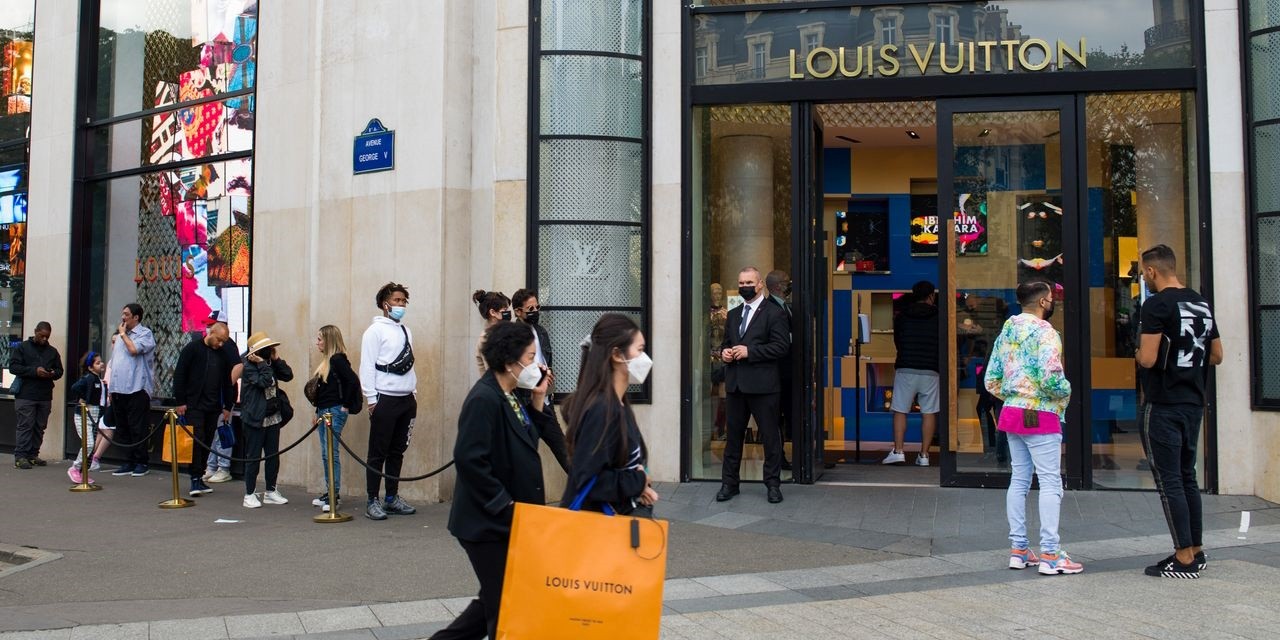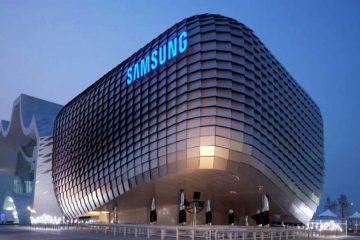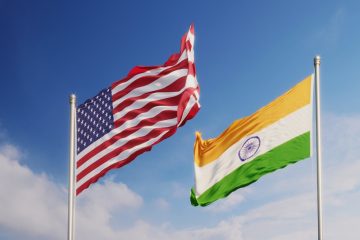Americans Are Buying Less Bling

The American luxury shopper is in retreat. The world’s largest luxury goods conglomerate, LVMH, said sales fell slightly in the U.S.—just recently the industry’s fastest-growing market and a key driver of its postpandemic boom. The owner of Louis Vuitton and Dior reported double-digit sales growth in all of its other key geographies, helping it post strong revenue and profit growth. The company said less affluent buyers of luxury goods in the U.S., however, have been cutting back on luxury purchases as the economy shows signs of strain.
Expensive brands have a reputation for selling to the super rich, but they rely heavily on shoppers further down the income scale, too. The 5% wealthiest shoppers account for about 40% of global luxury sales, according to a report from Boston Consulting Group. The rest comes from consumers who spend up to €2,000 a year on luxury goods, equivalent to $2,207 at today’s exchange rates.
LVMH’s chief financial officer, Jean Jacques Guiony, said the company was experiencing “a little bit of pressure with the American consumer” as so-called aspirational luxury customers cut back on buying cognac, fashion, leather goods, and jewelry. “We are experiencing drops with entry-price products, with online sales, with second-tier cities, which is a clear sign that the aspirational customer is not shopping as much as they used to,” Mr. Guiony said. “It’s a factor which seems to be particularly unique in the U.S.,” he said. LVMH said U.S. organic sales fell 1% in the second quarter from the year-ago period. Revenue rose 34% in Asia, excluding Japan, while sales were up 29% in Japan and 19% in Europe.
LVMH reported its performance after markets closed Tuesday. Its shares were down 4% in morning trading in Paris on Wednesday. Other big luxury makers, including Kering and Hermès, were also trading lower. Bernard Arnault, head of luxury-goods conglomerate LVMH, has a net worth larger than that of Elon Musk and Jeff Bezos. WSJ’s Nick Kostov explains how the French business magnate amassed his fortune and how he plans to keep that wealth under family control.
LVMH has ridden a surge of demand for luxury goods in recent years, particularly in the U.S., where buyers have snapped up brands that include fine wine, jewelry, fashion labels and upscale hotels. The growth has cemented the company’s position as the most valuable listed company in Europe. It has also helped Bernard Arnault, chief executive officer and controlling shareholder, compete with Elon Musk for the title of the world’s richest person.
In the years before the pandemic, Asia, particularly China, was the industry’s growth engine. As lockdowns fell away elsewhere, China has struggled to recover economically, and the U.S. emerged as the luxury industry’s most important market. Americans accounted for between 32% and 34% of global luxury spending last year, an increase from the 22% they represented in 2019, prepandemic, according to a Bain report. Luxury giants like Gucci and Hermès rediscovered the American shopper—flush with lockdown savings and eager to spend again—and pushed to expand their footprint beyond New York’s Fifth Ave. to Middle America.
Credit-card data shows U.S. luxury spending has been cooling for at least six months, especially among younger shoppers who have been squeezed by inflation. In June, Americans spent 19% less than they did in the same month of last year, according to Citi luxury analyst Thomas Chauvet, whose data tracks U.S. spending both at home and overseas. Earlier this month, Cartier-owner Richemont reported slightly lower than expected first-quarter sales, pressured by what it said was a slowing luxury market in the U.S. Those numbers sent Richemont’s shares down 10% on the day. Its woes ricocheted across the industry, hitting shares of LVMH and Hermès.
LVMH’s Mr. Guiony said some of the decrease was likely being driven by customers that had benefited from government support during the Covid-19 pandemic. Luxury companies in recent years have chased customers who might not be able to afford a Dior handbag, but can afford a Dior fragrance. That has made the industry more sensitive to the sorts of economic swings that affect other consumer goods companies.
Overall, LVMH said organic sales rose 17% in the second quarter, compared with the year-ago period. The company reported revenue of 42.24 billion euros, or about $46.66 billion, for the six months to June 30, a rise of 15%. Net profit rose 30% to 18.48 billion euros for the period. Its operating margin came in at 27.4%, even as it invested in advertising and promotions including staging a number of large-scale fashion shows.
Luxury labels like Louis Vuitton and Dior propelled a 20% rise in sales of LVMH’s largest division, fashion and leather goods, on a like-for-like basis. The company’s other divisions also posted double-digit revenue growth except its wine and spirits division, pressured by sales of cognac in the U.S. Gucci-owner Kering and French handbags maker Hermès are set to update investors later this week.










